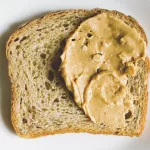Golden milk is rich in antioxidant and anti-inflammatory compounds that may deliver various health advantages, including potential protection against certain illnesses.
This vibrant yellow drink is traditionally prepared by warming dairy or plant-based milk with turmeric and other spices like cinnamon and ginger.
It’s praised for multiple health-promoting properties and is frequently used as a natural remedy to support immunity and help prevent sickness.
Below are 10 evidence-based benefits of golden milk — plus a simple recipe to prepare it at home.

Primary ingredients are high in antioxidants
The star spice in golden milk is turmeric, a bright yellow seasoning common in Asian cooking that gives curry its signature hue.
Curcumin, turmeric’s active constituent, has a long history in Ayurvedic practice because of its potent antioxidant action.
Antioxidants are molecules that protect cells from damage by combating oxidative stress.
They play a vital role in cell health, and research indicates that diets rich in antioxidants may lower the chance of infections and disease.
Most golden milk formulas also include ginger and cinnamon, both known for their notable antioxidant content.
May help ease inflammation and joint discomfort
The components of golden milk exhibit strong anti-inflammatory effects.
Persistent inflammation is believed to contribute to long-term conditions such as cancer, metabolic syndrome, Alzheimer’s disease, and cardiovascular disease. Thus, diets high in anti-inflammatory compounds may help decrease the risk of these ailments.
Studies of ginger, cinnamon, and curcumin (turmeric’s active molecule) demonstrate that each possesses strong anti-inflammatory properties.
These anti-inflammatory actions may help lower joint pain associated with osteoarthritis and rheumatoid arthritis.
For example, a 2022 review of 29 randomized clinical trials involving 2,396 participants with five types of arthritis found that those given curcumin or turmeric extract experienced reduced inflammation and pain.
Likewise, research concluded that participants who received ginger, either orally or topically, reported less pain and better knee function compared with placebo groups.
May enhance memory and cognitive function
Golden milk might also support brain health.
Studies show that curcumin can raise levels of brain-derived neurotrophic factor (BDNF). BDNF is a molecule that helps the brain form new neural connections and supports the growth of brain cells.
Low BDNF levels have been associated with neurological disorders such as Alzheimer’s disease.
Other spices in golden milk may contribute benefits as well.
For instance, a characteristic of Alzheimer’s is the buildup of tau protein in the brain. Research suggests that certain cinnamon compounds may help decrease this accumulation.
Additionally, cinnamon appears to lessen Parkinson’s symptoms and improve cognitive performance in animal experiments.
Ginger may also benefit cognition by enhancing reaction time and memory. Studies indicate it may offer protection against age-related cognitive decline (research).
However, more human trials are necessary to fully clarify how these ingredients affect memory and brain function.
Curcumin in turmeric may lift mood
Turmeric — and specifically curcumin — may help improve mood and ease symptoms of depression.
In a 12-week trial, 80 adults over 50 received either an 80 mg curcumin supplement or a placebo. By week 4, those taking curcumin reported less tension, anger, confusion, and fatigue than the placebo group.
At 12 weeks, the curcumin group demonstrated better memory and continued to feel less fatigued. However, they also showed significantly higher blood sugar levels.
Depression has been linked to lower BDNF levels. Since curcumin seems to increase BDNF, it may help reduce depressive symptoms.
Nevertheless, only a small number of studies exist, and further research is required before definitive claims can be made.
May help protect the heart
Cardiovascular disease is a leading cause of death. Interestingly, cinnamon, ginger, and turmeric — the main elements of golden milk — have all been associated with lowered heart disease risk factors.
A recent meta-analysis observed a tendency toward reduced LDL cholesterol and triglycerides in people who consumed cinnamon over time.
Another meta-analysis of 26 trials found that ginger intake significantly improved lipid profiles by lowering triglycerides and LDL while slightly raising HDL.
Additionally, curcumin may enhance endothelial function — the health of blood vessel linings — which is important for cardiovascular well-being.
In one study, patients undergoing heart surgery received either 4 grams of curcumin or a placebo shortly before and after their operation.
Those who got curcumin were 65% less likely to suffer a heart attack during hospitalization than those on placebo.
These antioxidant and anti-inflammatory qualities may help shield against heart disease, but studies are limited and more research is necessary to draw firm conclusions.
May help lower blood sugar
Components of golden milk, particularly ginger and cinnamon, may aid in reducing blood sugar levels.
For example, consuming 1–6 grams of cinnamon daily may reduce fasting blood glucose. Cinnamon may also decrease insulin resistance.
When cells are insulin-resistant, they take up less sugar from the bloodstream, so lowering insulin resistance generally reduces blood sugar.
Cinnamon can also reduce the amount of glucose absorbed in the gut after eating, further aiding blood sugar control.
Likewise, regularly adding modest amounts of ginger to the diet may cut fasting blood sugar by up to 12% and lower A1C by 10%.
Daily small doses of ginger might also reduce hemoglobin A1C — a long-term blood sugar marker — by up to 10%.
However, these findings come from a limited number of studies, and further research is needed to confirm them.
Note that most golden milk recipes are sweetened with honey or maple syrup. Any blood-sugar-lowering benefits are more likely when drinking unsweetened versions.
May lower cancer risk
Cancer involves uncontrolled cell proliferation.
Alongside conventional treatments, people are increasingly exploring alternative anticancer options. Some research indicates the spices in golden milk may offer some anticancer effects.
For instance, test-tube studies attribute anticancer activity to 6-gingerol, a compound abundant in raw ginger (research).
Similarly, studies suggest compounds in cinnamon may inhibit cancer cell growth.
Curcumin, turmeric’s active molecule, modulates the immune system and can down-regulate various signaling pathways relevant to anticancer effects.
Yet, evidence for cancer-preventive effects of ginger, cinnamon, and curcumin in humans remains limited.
Results across studies are inconsistent, and it’s unclear what amounts of these ingredients would be required to achieve meaningful benefits.
Has antibacterial, antiviral, and antifungal actions
In India, golden milk is commonly used as a folk remedy for colds and is promoted for its immune-supporting qualities.
Reviews indicate curcumin is effective at inhibiting the growth of many viruses. However, curcumin is rapidly metabolized in the body, which may limit its antiviral potential.
Although findings are encouraging, there’s currently no direct evidence that drinking golden milk reduces infections in people.
Animal studies suggest cinnamaldehyde, cinnamon’s active compound, can hinder bacterial growth, and an earlier review found cinnamaldehyde and related compounds to be effective antifungals, even against drug-resistant strains.
The antioxidant and anti-inflammatory effects of golden milk’s ingredients may also help support immune function.
Ginger and turmeric may aid digestion
Chronic indigestion, or dyspepsia, involves discomfort and pain in the upper abdomen.
Delayed stomach emptying can contribute to indigestion. Ginger, a common ingredient in golden milk, may help by accelerating stomach emptying in people with dyspepsia.
Research also shows turmeric may alleviate indigestion symptoms and improve fat digestion by increasing bile production by up to 62%.
Additionally, evidence suggests turmeric can help maintain digestive health and prevent flare-ups in people with ulcerative colitis, an inflammatory gut disorder that causes ulcers.
Calcium and vitamin D help support stronger bones
Golden milk can contribute to bone health.
Both cow’s milk and fortified plant-based milks typically contain calcium and vitamin D — nutrients crucial for building and preserving strong bones.
If dietary calcium is too low, the body will draw calcium from bone stores to keep blood calcium stable. Over time this weakens bones and raises the risk of conditions such as osteopenia and osteoporosis.
Vitamin D supports bone strength by helping the gut absorb calcium. Low vitamin D levels can lead to weak bones even when calcium intake is adequate.
While cow’s milk naturally contains calcium and is often fortified with vitamin D, not all plant milks are equally enriched.
If you choose to make golden milk with a plant-based milk, select one fortified with calcium and vitamin D to maximize bone-building benefits.
How to prepare golden milk
Golden milk is simple to prepare at home. For one serving (about one cup), use this recipe:
Ingredients:
- 1/2 cup (120 ml) of unsweetened milk of your choice
- 1 tsp turmeric
- 1 small piece of grated fresh ginger or 1/2 tsp ginger powder
- 1/2 tsp cinnamon powder
- 1 pinch ground black pepper
- 1 tsp honey or maple syrup (optional)
Directions:
Combine all ingredients in a small saucepan and bring to a gentle boil. Lower the heat and simmer for about 10 minutes until aromatic and flavorful. Strain through a fine sieve into cups and finish with a pinch of cinnamon.
You can prepare golden milk ahead of time and store it in the refrigerator for up to five days. Reheat before serving.
The bottom line
Golden milk is a tasty beverage packed with antioxidants that may offer multiple health perks, from supporting brain and heart health to strengthening bones, aiding digestion, and potentially lowering disease risk.
To maximize benefits, use a milk fortified with calcium and vitamin D and limit added honey or syrup.
























Leave a Reply
You must be logged in to post a comment.